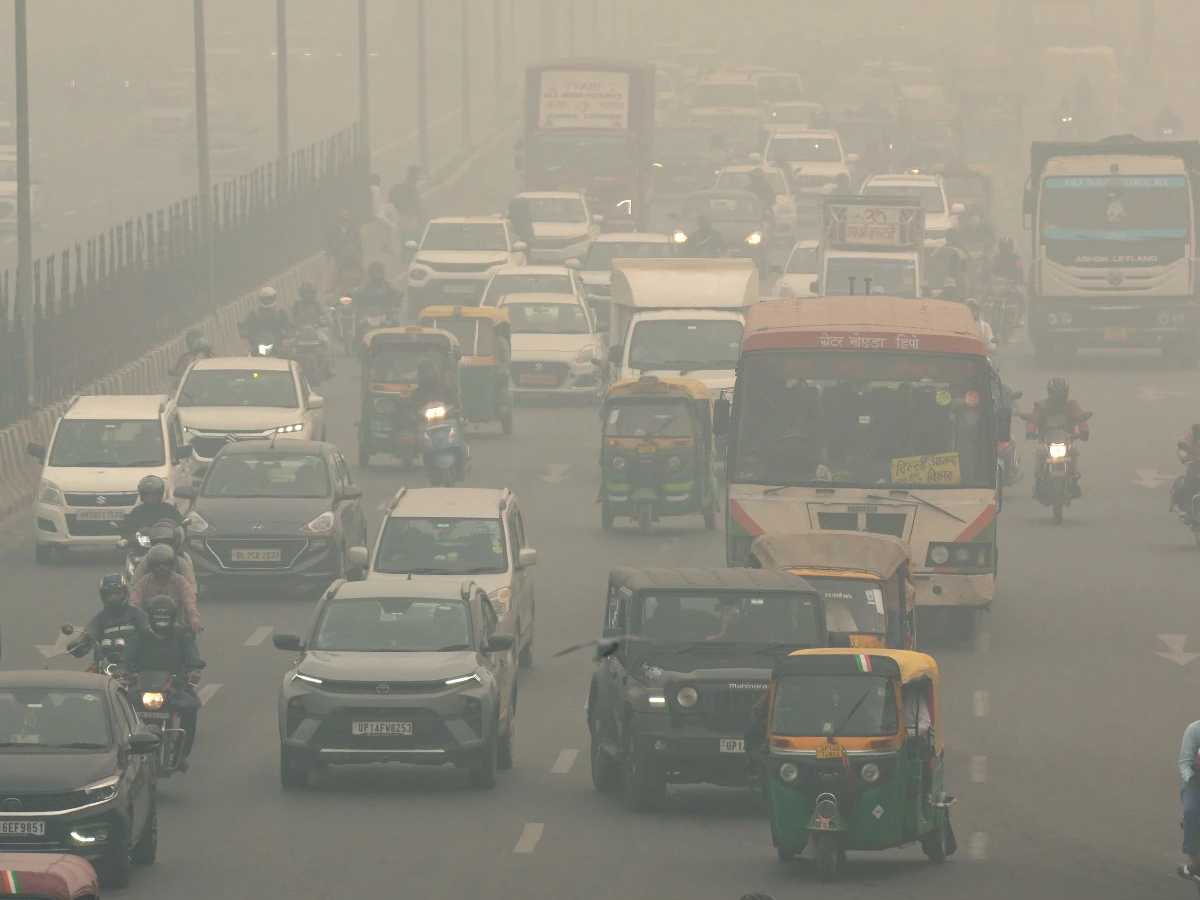
The Supreme Court announced on Friday that it would decide on November 25 whether to relax the GRAP-4 anti-pollution restrictions in Delhi-NCR, considering the recent decline in air quality index (AQI) levels.
A bench comprising Justices Abhay S Oka and Augustine George Masih criticised the inadequate enforcement of GRAP-4 measures, particularly the restrictions on the entry of trucks carrying non-essential goods into Delhi.
Implemented in 2017, the Graded Response Action Plan (GRAP) is a framework of anti-air pollution measures tailored to the severity of air quality in Delhi-NCR. It categorises air quality into four stages: Stage 1 “poor” (AQI 201-300), Stage 2 “very poor” (AQI 301-400), Stage 3 “severe” (AQI 401-450), and Stage 4 “severe plus” (AQI above 450).
To assess the implementation of truck entry restrictions, the Supreme Court on Friday appointed 13 lawyers as court commissioners to inspect various entry points in Delhi.
Additional Solicitor General Aishwarya Bhati informed the court that pollution levels had decreased over the past two days, with the AQI now falling under the GRAP-2 stage. However, Delhi’s overall AQI on Friday was recorded at 373, placing it in the “very poor” category.
On November 18, the Supreme Court had instructed Delhi-NCR states to immediately deploy teams to enforce GRAP-4 restrictions and stated that these curbs would remain in effect until further orders.
Also Read: Delhi’s fight against pollution hit by staff shortage
During Friday’s proceedings, the bench noted that GRAP-4 measures had significant adverse consequences. “The consequences of GRAP-4 are drastic and will impact several sections of society,” the court remarked. It plans to review the continuation of these curbs on November 25.
The court also addressed pollution caused by trucks entering Delhi and criticised the Delhi government for failing to enforce GRAP-4 measures effectively. “It is very difficult for us to assume that the entry of trucks into Delhi has been stopped,” the bench stated.
The Delhi government’s counsel informed the court that there are 113 entry points into the city, 13 of which are designated for trucks. The Supreme Court directed the Centre and Delhi Police to establish check posts at all 113 entry points.
The court is currently overseeing the matter of air pollution in Delhi-NCR, and the hearing is ongoing.
Delhi hosted what organisers describe as the world’s first player auction in golf, launching ‘72…
An elderly woman recalls how her six-year-old granddaughter lay bleeding after a speeding car hit…
Municipal Corporation of Delhi plans a unified policy enabling RWAs to adopt and maintain parks…
A 17-year-old boy allegedly died by suicide after jumping before a moving train at Uttam…
Delhi High Court grants bail to 26-year-old Thar driver accused of mowing down two in…
Two Rohini men arrested for fatally stabbing one person and injuring another during a robbery…